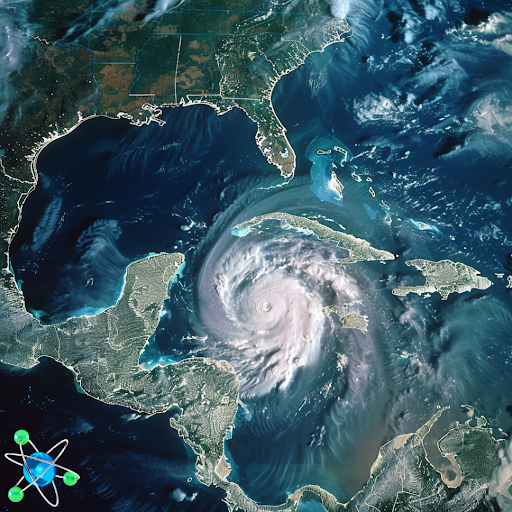
- Hurricane Beryl rapidly intensified from a tropical storm to a Category 4 and 5 hurricane in early July, attributed to climate change and rising ocean temperatures.
- The warmer waters in the tropical Atlantic, fueled by human-driven fossil fuel emissions, allowed Beryl to achieve unprecedented strength far earlier in the season.
- The severe damage caused by Beryl highlights the urgent need for action against climate change, as scientists warn of increasingly frequent and intense hurricanes.
In early July, Hurricane Beryl stunned experts with its unprecedented intensity as it tore through the Caribbean, rapidly escalating from a typical tropical storm into a devastating Category 4 and 5 hurricane. Scientists quickly reached a consensus attributing this alarming development to the effects of climate change.
The rising ocean temperatures, fueled largely by human-driven fossil fuel emissions, provided the ideal conditions for Beryl’s rapid growth. Warmer waters act as fuel for hurricanes, and this year, temperatures in the tropical Atlantic exceeded typical September levels unusually early in the season. This heat anomaly enabled Beryl to achieve Category 4 and 5 status far earlier than any other hurricane on record in the Atlantic.
The consequences were dire. Grenada’s prime minister described the damage as “unimaginable,” with significant destruction to infrastructure in the worst-hit regions. Such swift intensification is unusual; historically, Category 5 hurricanes have taken several days to develop from tropical storms. Climate change appears to be disrupting these patterns by prematurely warming ocean waters, triggering earlier and more intense hurricane activity.
The situation has left scientists grappling with new challenges. The National Weather Service’s Director, Ken Weathers, highlighted the anomaly, noting that while rapid intensification typically occurs later in the hurricane season, climate change seems to be reshaping these timelines. Understanding the complex interplay between a warming planet and hurricane behavior is now a pressing focus of scientific inquiry.
Looking ahead, the hurricane forecast for the coming months is ominous. Experts predict the highest number of storms on record, fueled by escalating global temperatures. The urgency to mitigate climate change has never been clearer. Without decisive action to reduce greenhouse gas emissions, the Earth faces an uncertain and potentially tumultuous future, where extreme weather events like Hurricane Beryl could become tragically commonplace.

0 Comments